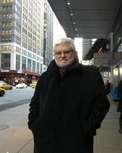 Chris
McDonnell, UK
Chris
McDonnell, UK
christymac733@gmail.com
Previous articles by Chris Comments
welcome here
November
8, 2017
It
happened many years ago

Our
calendar is littered with dates of memory, a scattering of history that we
still recall. The tragedy is that so many of those dates involve some
degree of violence, whether on the individual level or of conflict between
nations.
So we come to trace our ancestry from one gory
event to another, from one field of battle through to the gallows where
the victor took final retribution over the defeated enemy.
At each stage we seek to learn a lesson that will break the cycle
and somehow, time and again, we fail. The DMZ on the 38th line
of latitude marks the cease-fire line from the Korean conflict of the 50s.
It was a war that was never concluded, just a cease-fire agreed.
Yet all these years later that cease fire is at risk of being
broken.
Think back through dates of the last century
and find a year when a significant conflict was not happening. There are
very few of them. Why is it that human conflict seems to be endemic, why
do we never answer the questions posed by Pete Seeger in his song asking
where have all the flowers gone? Experience has helped us learn little.
The religious conflicts of the Christian era
have not helped redress the balance. Across Europe the barbarity that
arose from a difference of religious opinion touched our own shores on
many occasions. The Elizabethan years and their immediate aftermath showed
just how far people would go to justify their position. It was a society
in religious and political turmoil.
It seems that on a periodic basis humanity revises its codes and
structures and where common
agreement on change cannot be achieved, then forceful methods are
employed. In the course of readjustment, many are unavoidably caught up in
conflict.
One such date of memory comes in these early
days of November, marking the Armistice to the War that, in Wilfred Owen's
words, slew 'Half the seed of Europe
one by one'. As one conflict exhausted itself, Revolution in Russia
began another painful story that would run almost to the end of the
Century.
Arguments of injustice and ownership underlie
so many disagreements that have resulted in the outbreak of war. Once
positions are taken it is hard to back off, to admit mistakes and return
to the table. Ed McCurdy the American song writer penned these words in
1950. Many different artists have recorded it since then.
Last
night I had the strangest dream/ I'd ever dreamed before
I dreamed the world had all agreed /To put an end to war
I dreamed I saw a mighty room/ The room was filled with men
And the paper they were signing said/They'd never fight again
And when the paper was all signed/ And a million copies made
They all joined hands and bowed their heads /And grateful prayers were
prayed
We still seem a
long way from that dream.
In a different manner, taking sides has
resulted in entrenched positions within the Catholic communion of the
West. The arrival in Rome of an Argentinean bishop, assuming the name of
Francis, has sent shock waves through the Church, with open opposition to
his leadership becoming more and more forceful.
Recently, in reaction to the curial discontent that threatens his
path of renewal, an open letter has been
issued in support of the post-Vatican II Church that was the intention of
the Fathers in the early 60s. The letter contains these words addressed to
Francis.
'Your pastoral initiatives and their
theological justification are currently under vehement attack by a group
in the church. With this open letter, we wish to express our gratitude for
your courageous and theologically sound papal leadership.
In
a short time, you have succeeded in reshaping the pastoral culture of the
Roman Catholic Church in accordance with its origin in Jesus. Wounded
people and wounded nature go straight to your heart. You see the church as
a field hospital on the margins of life. Your concern is every single
person loved by God. When encountering others, compassion and not the law
shall have the last word. God and Godís mercy characterize the pastoral
culture that you expect from the church. You dream of a "church as
mother and shepherdess." We share your dream.
We ask that you would not veer from
the path you have taken, and we assure you of our full support and
constant prayer'.
This dream of
peaceful and co-operative development reflects in a real way the
continuing mission of the Church in the light of the Gospel story.
Our memory of the teaching of Jesus of
Nazareth must not be clouded by legalism that over-rides the message of
love and compassion that he left us. We must not be afraid.
END
---------------
 Chris
McDonnell, UK
Chris
McDonnell, UK Chris
McDonnell, UK
Chris
McDonnell, UK